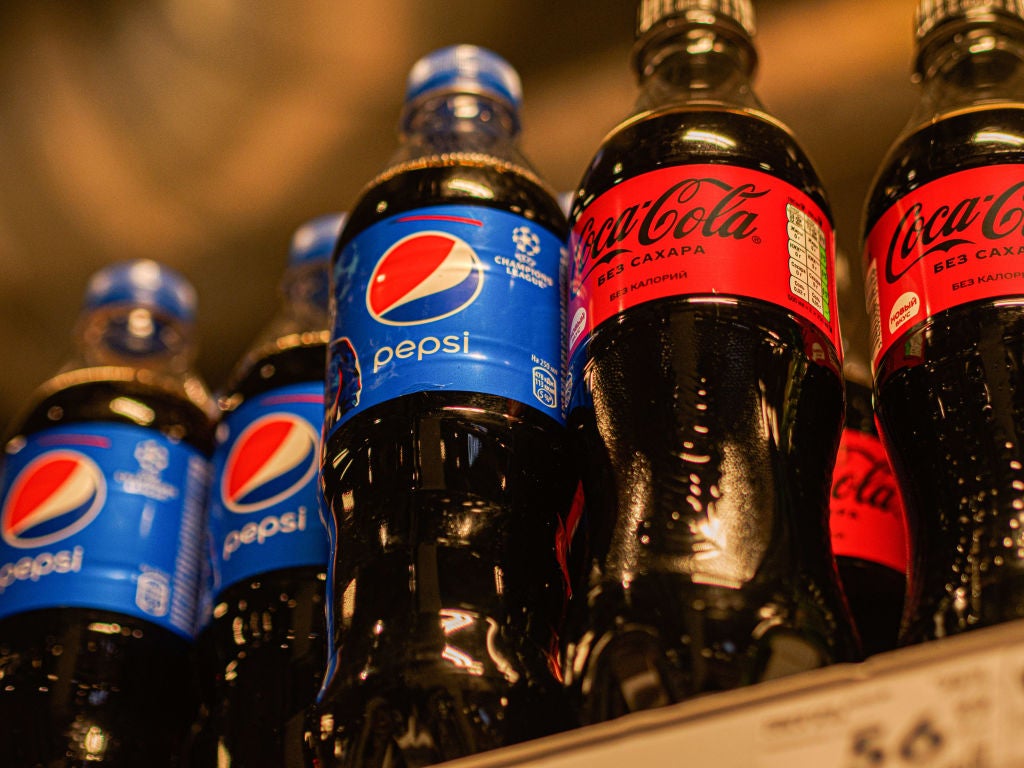
Carbonated drinks, more commonly known as sodas and notorious for having a high sugar content, are the single largest source of calories and added sugar in many countries around the world, including the US. This problem is taking hold in developing countries too, with a combination of urbanisation (and therefore easier access) and clever marketing increasing the popularity of these beverages.
The soda market is dominated on a global level by two hugely powerful names – Coca-Cola and PepsiCo – an issue that has brought with it condemnation from some quarters. According to a paper in the scientific journal Globalization and Health, this level of control and influence at senior political levels can be detrimental when it comes to achieving the UN’s Sustainable Development Goals (SDGs).
The paper’s authors state that the dominance of carbonated drinks has an adverse affect on the race to achieve the 2030 targets of:
- SDG2 (achieving zero hunger) by extensively marketing unhealthy products. In 2010 alone, the consumption of sugar-sweetened beverages contributed to an estimated 184,000 deaths and 8.5 million disability-adjusted life-years worldwide.
- SDG3 (good health and well-being) by lack of redistribution of wealth via income taxes. The authors found that the annual effective tax rates of both Coca-Cola and PepsiCo “have declined to around one-half of the levels seen in the late-1960s, signifying that over the past 50 years the proportion of the wealth redistributed to the public in the form of income tax revenues from these companies has decreased substantially”.
- SDG14 (life on land) and SDG15 (life below water). It is estimated that the greenhouse gas (GHG) emissions released from the burning of Coca-Cola’s plastic waste, alone, are equal to approximately three-quarters of the total GHG emissions generated from the company’s entire global transport and distribution system.
Despite the effect that the soft drinks industry can have on health and the environment, the public’s attitude towards the industry is predominantly neutral, or even favourable, as shown by a survey conducted by YouGov. In May 2020, 20% of survey respondents were “somewhat favourable” to soft drinks companies in the UK, while 48% were “neither favourable nor unfavourable”, and 4% were “very favourable”. Some 12% of respondents were “somewhat unfavourable” and 6% “very unfavourable”.
Soda's health kick
In recent years, however, the soda market within the US and Europe has experienced a number of changes as consumers have become more aware of the health risks associated with beverages that have a high sugar content.
According to GlobalData’s beverages division content manager, Antonella Reda, the key forces behind these changes are linked to health and sustainability, primarily the introduction of sugar taxes and increasing health awareness among consumers, which was accelerated by the Covid-19 pandemic.
Also, “retail, especially convenience stores and on-the-go outlets, have expanded shelf space for low and zero-calorie options significantly”, says Reda, who adds that more products with a “health halo” are appearing on the market, “although this is still niche in the category”.
“Healthier formulations often result in higher price points, which can serve as a point-of-sale barrier, particularly given the current cost-of-living crisis and the category’s typical characterisation as price competitive," says Reda. "However, consumer interest in organic, ethically produced and locally sourced ‘soda’ drinks is growing, particularly among younger consumers, despite a premium mark-up.”
She adds that sustainability credentials are also reshaping the soda landscape, a topic that is “high on the agenda for all major multinational soda companies”.
Finally, Reda mentions how localism, particularly in western Europe and regionally in the US, is a rising trend. “Coca-Cola, for instance, supports local producers in Sicily in Italy, via the Fanta brand, which claims its ingredients are ‘sourced from local fruit’,” she says.
How has the Covid-19 pandemic affected the soda market?
These trends were not caused by the pandemic – consumers had been increasingly showing a preference for healthier choices in the years before the initial outbreak – but the Covid-19 health crisis ”increased the consumer focus on well-being and the perception of soft drinks ingredients and calorie content," says Reda. "There is a willingness to spend on quality versus quantity in the middle and high-income brackets.”
From a purely product lens, the pandemic affected the way sodas were sold, as larger pack sizes were favoured due to consumers being constrained by lockdowns, according to Reda. They also more frequently used e-commerce to buy sodas, and Reda says this change becoming permanent due to the current cost-of-living crisis, as many people will opt for “convenient channels as they continue to primarily work from home”.
The Covid-19 pandemic had a major effect on the production and consumption of sodas, only to be followed by the Russian invasion of Ukraine and economic crisis across the world. There has been added pressure on acquiring raw materials, including the all-important carbon dioxide that gives sodas their fizz, as well as ”rising inflation rates and weakened consumer spending power that will have heavy implications on both European and US markets”, explains Reda.
Forces such as the pandemic, combined with the overall trend towards consumers preferring healthier beverages, have led to a decline in soda consumption in countries such as the US since the peak in the late 1990s. In the UK, the volume of sugars sold per capita per day from soft drinks declined by 30% between 2015 and 2018.
Despite such statistics, it seems unlikely that sodas will fizzle out completely, but instead evolve to suit new consumer tastes. Reda says that newer, healthier products are popping up in the market, and even taking up more space on supermarket shelves.
Traditional sodas are still a huge presence in the beverages market and it is unlikely they will go flat any time soon. However, healthier and more sustainable options are likely to continue to grow in popularity as a generational change takes place and younger consumers start to favour sugar-free sodas over a traditional Coke or Dr Pepper.



